This website uses cookies
We use cookies to ensure that we give you the best experience on our website. If you continue to use this site we will assume that you are happy with it.
Jump to:
Jaclyn Kelley-Widmer, Clinical Professor of Law
Alisa Whitfield, Adjunct Clinical Professor of Law
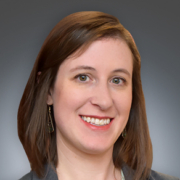
Jaclyn Kelley-Widmer
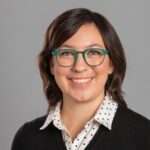
Alisa Whitfield
In spring 2024, the 1L Immigration Law & Advocacy Clinic has eight fantastic first-year students working on a variety of cases for immigrants living in the Ithaca area and elsewhere. With its co-counsel, Journey’s End Refugee Services, the clinic is working with several local families who are seeking asylum, supporting their cases through interviewing assistance, legal research, brief writing, and country-conditions research. Students in the clinic are also working with a cohort of deferred action for childhood arrival (DACA) recipients and consulting with undocumented and DACA students at Cornell.
The clinic is continuing its work on behalf of clients detained in Louisiana and Batavia, New York. First-year students and advanced students traveled to the Buffalo Federal Detention Facility in Batavia in March, where they worked in coalition with partner attorneys from the ACLU, Prisoner’s Legal Services, and RFK Human Rights. The students met with detained people to provide them legal information and individualized legal advice for their cases. Students were able to engage in trauma-informed interviewing, issue spotting, and analysis in a high-stakes environment.
The clinic also continues to engage in public-facing work, including a recent webinar about advance parole for DACA recipients that reached a national audience and an upcoming Undocu-Ally training on campus. Finally, students are preparing pro se resources to provide to immigrants in detention.
Rachel Goldberg, Associate Clinical Professor of Law

Rachel Goldberg
This spring, 2Ls and 3Ls in in the Appellate Criminal Defense Clinic are representing clients appealing their New York felony convictions, including one client serving an eighteen-to-life sentence for second-degree assault. Students were able to travel across the state to meet their incarcerated clients in person. In February, the New York City District Attorney agreed that a clinic client had been sentenced improperly after trial. In anticipation of the client’s resentencing, clinic students Gigi Scerbo ’24 and Sarah Stevenson-Peck ’25 helped draft a motion arguing that the client’s sentence should be lowered, in part because the client had suffered violence, retaliation, and extreme medical neglect while incarcerated. Their persuasive argument resonated with the court, which cut the client’s sentence by more than half, sentencing him to the minimum term of incarceration.
Estelle McKee, Clinical Professor of Law
Stephen W. Yale-Loehr, Professor of Immigration Law Practice

Estelle McKee

Steve Yale-Loehr
The Asylum and Convention Against Torture Appellate Clinic won remands in two appeals before the Board of Immigration Appeals. The first involved a man who escaped gang violence in Mexico. The second benefited a man who feared torture by gangs or the government in El Salvador.
This semester, the clinic also won a remand on an asylum claim that went to oral argument in the Ninth Circuit. The Ninth Circuit held that the record compelled the conclusion that the Salvadoran government was unable to prevent the petitioner’s husband from abusing her.
This semester, the Ninth Circuit scheduled an oral argument in a petition briefed by the clinic two years ago. Alyssa Kastner, who is in her fourth year in the Cornell J.D./Master en Droit program, argued on behalf of a petitioner challenging a criminal bar to asylum and seeking Convention Against Torture relief based on extensive abuse by his father, a member of Los Zetas in Mexico.
In another case, the Ninth Circuit ordered mediation in a case involving a petitioner seeking Convention Against Torture relief because of gang threats based on his father’s military service. Sahil Patel ’24, a pro bono scholar for the clinic, will seek relief for his client through the mediation process.
John Blume, Samuel F. Leibowitz Professor of Trial Techniques
Sheri Johnson, James and Mark Flanagan Professor of Law
Keir Weyble, Clinical Professor of Law and Director of Death Penalty Litigation
Allison Franz, Adjunct Professor of Law
Susan Knight, Adjunct Professor of Law

John Blume

Sheri Johnson

Keir Weyble
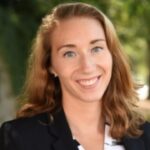
Allison Franz

Susan Knight
The Capital Punishment Clinic staff and students continue their efforts challenging South Carolina’s return to execution in the electric chair and the addition of the firing squad as “cruel,” “unusual,” and “corporal” punishment prohibited by the state constitution. Professor John Blume initially argued the case in January 2023. The South Carolina Supreme Court remanded the case to the trial court for additional discovery, and then heard arguments again in February of this year. After a multi-day trial, a state judge found both methods to be unconstitutional and the state appealed. Juvenile Justice Clinic client Kenneth Robinson was recently resentenced to a fifteen-year term of imprisonment after pleading guilty to manslaughter, and he will be released in three years. Initially sentenced to fifty-five years following a conviction for murder and other offenses, his convictions were reversed when the Juvenile Justice Clinic was successful in persuading the South Carolina Court of Appeals that the trial judge had erred in admitting evidence that the crime was allegedly gang related.
Allison (Ali) Franz is coteaching the Capital Punishment and Juvenile Justice Clinics along with professors John Blume and Susan Knight. Franz ’21 is a staff attorney at Justice 360 in Columbia, South Carolina, and a former student in the clinic.
Ellen Eagen, Adjunct Professor of Law

Ellen Eagen
In its third spring, the Education Law Practicum (ELP) continues to use legal frameworks to reimagine K-12 education while working directly with various constituent groups, including students, families, school leaders, teachers, and administrators. Doubling in size since its inception, ELP and Advanced ELP law students provide legal services for various educational entities, such as charter schools, independent schools, and educational non-profit organizations in New York and California.
Over the last three years, students have provided legal counsel related to a range of topics, including school shootings, the violation of students’ civil rights to a free appropriate public education under the Individuals with Disabilities Education Act, the use of biometrics in student teaching and learning, and the legal implications of using artificial intelligence in the K-12 classroom.
This semester, ELP will continue to partner with the Cornell Brooks School of Public Policy to tackle issues in the education space, specifically advocating for state laws that support the training of students to administer Narcan (the opioid overdose reversal medication) in high schools and establishing and expanding school-based health clinics. In addition, this spring, law students will present a Know Your Rights workshop at New Roots Charter School in Ithaca. For the last two years, ELP presented a Know Your Rights workshop to high school students at OnTECH Charter High School in Syracuse. During this workshop, students learn about their rights related to being pulled over by the police, privacy concerns of TikTok, the limits of free speech in the school settings, finance and the law, and the historical relevance of land acknowledgements. “Having learned so many practical skills while taking a number of clinics at CLS,” says education lawyer Ellen Eagen ’03, “it is a pleasure to return to Cornell and provide clinical training in education law to its students, who, having been exposed to educational systems for over fifteen years, bring a wealth of their own knowledge and experience to the practice area.”
Celia Bigoness, Clinical Professor of Law and Director of the Blassberg-Rice Center for Entrepreneurship Law
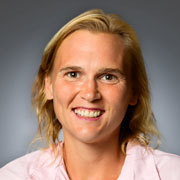
Celia Bigoness
Students in the Entrepreneurship Law Clinic have continued to represent entrepreneurs and small start-up businesses in both the for-profit and nonprofit spaces. One of the clinic’s clients, a nonprofit documentary filmmaker who made a documentary about redlining practices in residential mortgages, was featured in this article. That documentary will be released this spring, and it was chosen to be featured in the Omaha Film Festival.
As previously announced, the Entrepreneurship Law Clinic is expanding significantly in 2024 as part of the new Blassberg-Rice Center for Entrepreneurship Law. The first step of this expansion will be the establishment of a new branch of the clinic at the Cornell Tech campus on Roosevelt Island in New York City. The new clinic, Cornell Law School’s first clinical offering at the Cornell Tech campus, will allow J.D. students who spend a semester in residence at the Tech campus to serve entrepreneurs and small businesses around New York City.
Beth Lyon, Associate Dean for Experiential Education, Clinical Professor of Law, and Clinical Program Director
Reina Fostyk, Legal Fellow, Farmworker Legal Assistance Clinic
Tasha Gottschalk-Fielding, Legal Fellow, Farmworker Legal Assistance Clinic

Beth Lyon
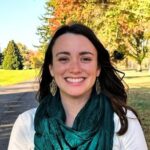
Reina Fostyk

Tasha Gottschalk-Fielding
The Farmworker Legal Assistance Clinic is thrilled to welcome former clinic student and recent Law School graduate Tasha Gottschalk-Fielding ’23 to the Mohawk Valley Region (MVR) Project in the Cooperstown office as a 2023–25 Immigrant Justice Corps Fellow.
The MVR Project is working to establish legal status for immigrant children and youth who are living (and often working) in the United States without one or both of their parents. In the coming year, the MVR Project team is representing clients seeking predicate orders at guardianship hearings in county courts in the MVR including Chenango, Herkimer, Oneida, and Montgomery counties. Through these efforts, the team hopes to put many more young people on a path to citizenship.
In addition to their work on behalf of individual clients, the MVR Project team, an attorney from Hiscock Legal Aid, and two clinic students — Orion Hicks ’25 and Josiah Jones ’25 — led an “Immigration 101” talk at the Village Library of Cooperstown. The event offered the community a chance to learn more about the U.S. immigration system as a whole and about immigration assistance offered locally.
The MVR Project team is also pleased to announce an exciting tool hosted on the new I-ARC website: an interactive map of Upstate NY immigration legal service providers. The clinic hopes this tool will address an information gap regarding what immigration legal service providers are dedicated to serving which counties upstate.
The Ithaca-based clinic continues to handle a busy caseload in the areas of deportation defense, H2A temporary worker protection, and Federal Tort Claims Act advocacy on behalf of survivors of family separation. Over this winter and spring, the clinic made numerous appearances in New York state and immigration courts. The clinic also continues to provide research support for institutional clients in areas including comparative farmworker law and child farmworker protection.
Tasha Gottschalk-Fielding is dedicated to providing legal representation for children and youth in the immigration system. Tasha’s passion for immigration law began as an undergrad at Cornell University through the classes she took as an American Studies major and Spanish minor and shadowing at local immigration law firms in Upstate New York.
After undergrad, Tasha spent two years working as a Universal Pre-K teacher assistant in a Syracuse, New York, neighborhood with large immigrant and refugee communities. Through this position, she had daily opportunities to witness how children’s lives can be transformed through the immigration system when their families are unified in safe environments.
While at Cornell Law School, Tasha represented more than a dozen child and youth farmworkers across Upstate New York in the Farmworker Legal Assistance Clinic. Her work covered all stages of the Special Immigrant Juvenile process, along with removal defense, U-visas, and asylum.
Mark Jackson, Adjunct Professor of Law and Clinic Director
Gautam Hans, Associate Clinic Professor of Law and Clinic Associate Director
Michael Grygiel, Adjunct Professor of Law
Heather Murray, Managing Attorney of the Local Journalism Project
Christina Hernsdorf (Neitzey), Stanton Fellow (not pictured)

Mark Jackson
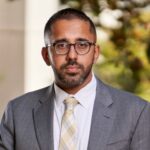
Gautam Hans

Michael Grygiel

Heather Murray
After several alumni reached out to Clinic Director Mark Jackson last summer regarding pro bono opportunities with the clinic, the clinic launched a Panel of Participating Attorneys to co-counsel with alumni on clinic matters. Five alumni are currently working on Local Journalism Project cases, with one already arguing twice in New York and Pennsylvania in recent months in matters seeking access to agency and court records, and others drafting pleadings and substantive motion papers. The significant alumni interest in partnering with the clinic underscores the importance of this work in helping to develop our students into practicing attorneys and to fostering a real appreciation for the First Amendment principles that the clinic aims to protect and enhance.
In addition to this new initiative, the clinic won access in November to basic information that is key to assessing New York City’s pilot program aimed at curbing dangerous driving, and successfully unsealed (with co-counsel the Reporters Committee for Freedom of the Press) a wrongful death settlement agreement in December in a Pennsylvania federal court. In another Pennsylvania matter, a student argued in the Commonwealth Court in October in a case seeking access to attorney’s fees.
The clinic filed several briefs during the fall semester, including an appellate brief challenging a parole condition that mandates that a parolee not view or access any material depicting nudity or sexual activity, two appellate briefs defending New York clients against libel suits, and two appellate briefs in public records matters. Several of these matters are highlighted in more detail here. In one of the libel suits, a student is expected to argue in April in the Appellate Division, Fourth Department, on behalf of clients who were sued over a series of Facebook posts and comments. The posts and comments warned colleagues in the Central New York independent music scene about another musician’s allegedly sexually inappropriate behavior at music festivals and elsewhere.
The clinic also filed two suits in December. The first claims that Delaware County officials violated a Catskill newspaper’s First Amendment rights when they revoked the paper’s designation as an official county paper in retaliation for its coverage and when the County Attorney issued a gag directive prohibiting employees from freely communicating with the paper’s staff. The second seeks access to bodycam footage of a police chase in Vermont that resulted in the death of a rookie police officer.
Long-time First Amendment expert Michael J. Grygiel joined the Cornell Law School First Amendment Clinic as an adjunct professor of law for the spring semester. In that position, Grygiel is helping to oversee the day-to-day docket of the clinic, along with Director Mark Jackson, Managing Attorney of the Clinic’s Local Journalism Project Heather Murray, and Stanton Fellow Christina Hernsdorf (Neitzey). (Gautam Hans, associate clinical professor of law and associate director of the clinic, is on sabbatical this semester.)
Grygiel is currently the cochair of the National Media and Entertainment Litigation Group at the law firm Greenberg Traurig, with an emphasis on defending news and entertainment organizations from newsgathering and publication-related claims, including defamation, copyright infringement, and invasion of privacy matters. Grygiel was recently named a 2023 “Lawyer of the Year” by Media & Entertainment Law360 for successfully representing his clients in complex high visibility and high-stakes First Amendment litigation, and is one of only five lawyers nationally recognized in this practice category.
In addition to his extensive litigation practice, Grygiel monitors developments in First Amendment law, writing regularly for legal academic journals and press industry publications on matters as varied as the digital free speech rights of public high school students and the importance of public access to judicial documents in federal court dockets.
Elizabeth Brundige, Clinical Professor of Law
Lorelei Lee, Adjunct Professor of Law (not pictured)
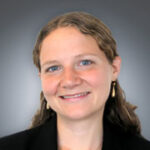
Elizabeth Brundige
In October 2023, Gender Justice Clinic faculty, students, and community partners traveled to Geneva, Switzerland, to present recommendations to the United Nations Human Rights Committee as the committee reviewed the human rights record of the United States. The clinic had previously submitted a shadow report to the committee that discussed the United States’ failure to adequately prevent and respond to sexual violence in the U.S. military, and another report that focused on the human rights implications of its approach to human trafficking prevention. In its concluding observations, the committee addressed both issues and called for many of the changes the clinic and its partners are seeking.
The clinic continues to represent a gender justice activist and her family members in their affirmative asylum cases, which the clinic first took on in collaboration with the Asylum and Convention Against Torture Appellate Clinic and the 1L Immigration Law and Advocacy Clinic. This semester, clinic students are also supporting the family members in their applications for temporary protection status. In addition, the clinic is representing a feminist youth activist in her affirmative asylum case and related immigration matters.
Clinic students have participated in several recent community education events. In November 2023, clinic students and faculty spoke about the impact of recent legal developments on LGBTQ+ health equity at a meeting of the American College Health Association’s LGBTQ+ Health Equity Task Force. On International Women’s Day this spring, clinic students and faculty spoke to more than fifty high school students in Trumansburg, New York, about using human rights law, language, or strategies to advance gender justice. The clinic also collaborated with the Veterans Law Practicum and the Berger International Legal Studies Program to host and participate in a panel event, “Bringing Human Rights Home: Representing Survivors of Military Trauma,” which took place on March 19.
Clinic students are also wrapping up their analysis and writing for a research and advocacy project, undertaken in coordination with the ACLU’s Women’s Rights Project, that seeks to investigate and address gaps and challenges in the Peace Corps’ efforts to prevent and respond to sexual violence against its volunteers. Other ongoing projects include development of a handbook on anti-gender-based violence law for lawyers and judicial officers in Zambia, and support for a sex-worker-led research project on financial discrimination against people in the sex trades.
Sandra Babcock, Clinical Professor of Law

Sandra Babcock
The International Human Rights Clinic won two significant victories in fall 2023. Clinic clients Chausiku Nchama Magoiga and Anna Makame (pseudonym) were both released after facing possible execution in Tanzania. Both were survivors of severe gender-based violence. Clinic students and alumni played a critical role in securing the release of both women, who are now back with their families and recovering from years in prison. The clinic is also assisting Ugandan human rights defenders who are challenging the country’s draconian Anti-Homosexuality Act, which provides for the death penalty for persons who engage in same-sex sexual acts. Clinic students will soon file a petition on behalf of an incarcerated journalist in Texas who has been held in solitary confinement because the prison has deemed her “high profile,” a rationale that bears no relation to the justifications for solitary confinement under prison regulations.
Bahar Mirhosseni, Gender and Criminal Justice Fellow

Bahar Mirhosseni
The Cornell Center on the Death Penalty Worldwide is pleased to welcome Bahar Mirhosseni as its new Gender and Criminal Justice Fellow! Bahar has worked as a public defender and trainer for defense teams around the world through the ABA and the International Legal Foundation. She will be leading the center’s efforts to train incarcerated women and their advocates in effective storytelling and to develop practical toolkits on gender-sensitive legal representation.
Angela Cornell, Clinical Professor of Law

Angela Cornell
It has been a busy time in the Labor Law Clinic with new organizing cases and related National Labor Relations Board (NLRB) charges, preparation for another arbitration case, and a hearing on disability discrimination before a Division of Human Rights administrative law judge. Clinic students Malcolm Drenttel ’25, Victoria Malkoun ’25, Robb Ridgley ’25, and Sam Tannenbaum ’24 were able to get an excellent settlement in their case from fall semester, which started with an unfair labor practice charge filed with the NLRB related to an employer’s unilateral change and contract violation. The NLRB charge was deferred to arbitration before settling. The case resulted in workers getting several thousand dollars for bargaining unit members, and additional annual increases thereafter. The clinic also received a great decision in an arbitration case from last semester and a win for the union it represented. The clinic has other unfair labor practice cases pending before the NLRB, and one going to a hearing in April after a complaint was issued on several allegations related to organizing activities.
Julia Mizutani, Law Research, Instruction, and Liaison Librarian; Adjunct Professor of Law
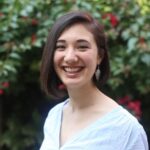
Julia Mizutani
In spring 2024, nine Cornell Law students are enrolled in the Prison Education Practicum and teaching various law classes and programs at two maximum-security prisons and one medium-security prison. Law students teach in pairs and are in prison classrooms for at least fifteen weeks during the semester, with each weekly class session lasting two-to-three hours. Law students are teaching a Constitutional Law class at Five Points Correctional Facility, a contracts class at Cayuga Correctional Facility, and a class on Tribal Sovereignty and Supreme Court cases at Auburn Correctional Facility. Law students are also running two debate clubs, one at Cayuga Correctional Facility and one at Auburn Correctional Facility. At the end of the semester, the Cayuga Debate Club will debate students in the Cornell Speech and Debate Program.
In the seminar-style classroom component of the practicum, law students have heard from guest speakers, such as instructional designers from the Center for Teaching Innovation and staff from the Cornell Prison Education Program, about adult active-learning strategies and the history and future of college courses in prisons. Law students also spoke with Bryon Russ, a formerly incarcerated individual who was granted clemency last year and who spoke about his extensive experience as a law clerk and jailhouse lawyer, alongside his wife Jolene Russ, who spoke about her activism. Law students have also visited the Prisoner Express program at the Durland Alternatives Library to learn about other ways that educational materials and literature circulate in prisons across the country. In the last half of the semester, law students will present activities, assignments, and teaching materials they have created for their classes, as well as leading discussions on issues such as prison economy, prison geography, collateral consequences, and other relevant topics.
William Niebel, Tenants Advocacy Attorney and Adjunct Professor of Law
Kathryn Krause Wozer, Tenants Advocacy Staff Attorney (not pictured)

William Niebel
The development and expansion of the Tenants Advocacy Practicum continues this spring. Seven law students returned to the practicum as advanced students to continue honing their advocacy skills while helping local tenants in need. One undergraduate student also returned for a second semester; she serves as the operations manager for the Tenants Legal Hotline (where the practicum obtains its cases). Additionally, ten law students are enrolled in the primary course this spring, bringing the total to eighteen students. The practicum also welcomed its first extern this semester and its second Pro Bono Scholar.
This semester, the practicum has partnered with six computer science students from Cornell’s College of Computing and Information Science to improve “Teny,” the hula-hooping house chatbot. Teny provides information from the upstate New York Tenants’ Rights Guide and is available on the Ithaca Tenant Resources website. This project is part of Professor Sharlane Cleare’s experiential course. The computer science students will interview diverse local tenants to improve the chatbot, and the team will also work on simplifying the language, including more visuals, linking to nonprofit and governmental resources, and redesigning the order of Teny’s messages, so that tenants can get the information they need—even if they don’t know the exact terms.
The practicum is also involved in an exciting collaboration with Josef, a legal automation company, to develop an AI tenants’ rights research tool. Students in the practicum are using this tool for their research this semester to test it, contribute to its knowledge base, and moderate its answers to make it more reliable. The goal is to eventually make this a self-service resource available to the public, for people seeking information about tenancy issues.
On the casework front, the student-attorneys in the practicum are doing amazing work. Joseph Simkovic ’24 and Jack Ligon ’24 recently conducted a trial in Ithaca City Court. They obtained a resounding and complete victory for their client, including an award of $2,500 in punitive damages! They also successfully defended against the counterclaim their client was facing. Andrew Pei ’25 and Ellie Yang ’24 have filed the practicum’s first case under the newly-enacted Tenant Dignity and Safe Housing Act, seeking a court order that the landlord promptly restore essential services (heat) in the client’s home. Victoria Lee ’24 filed the practicum’s second appeal to Tompkins County Court and succeeded in preventing the client’s eviction. And the practicum continues to coordinate and collaborate with the Veterans Law Practicum to better assist clients who served in the military and are at risk of homelessness.
Kathryn Krause Wozer began working with the Tenants Advocacy Practicum on February 1, 2024, as the new staff attorney. This position is funded by the New York State Office of Temporary and Disability Assistance through a subcontract with Legal Assistance of Western New York. This allows the practicum to handle more cases and provide extended representation to tenants in Allegany, Chemung, Schuyler, Steuben, Tioga, and Tompkins counties.
Wozer was previously a staff attorney with Legal Services of Central New York, where she represented low-income clients in a range of civil legal matters and developed particular expertise in eviction defense and housing justice. She credits her experience at Legal Services, and her dedicated colleagues there, with inspiring her passion for housing work, which she hopes to pass on to the practicum students. She is a graduate of the University at Buffalo Law School, and Seton Hall University, and is a member of the New York Bar.
Ian Kysel, Assistant Clinical Professor of Law
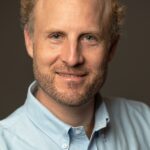
Ian Kysel
Students in the Transnational Disputes Clinic recently filed litigation in federal court against the Department of State, the FBI, and the CIA on behalf of their client, Ms. F. For more than ten years, Ms. F., a U.S. citizen whose family fled Afghanistan when she was a child, has sought to reunite in the United States with her husband, Mr. R, an Afghan citizen. Their family, which includes four U.S. citizen children, have suffered through war, displacement, and years of separation across three continents. After the family was detained at Camp Bondsteel, a U.S. military base in Kosovo, for nearly a year, the U.S. government informed the family that Mr. R’s immigrant visa application—which had been in administrative processing for years—was denied. Students also contributed to an amicus brief on behalf of the Global Strategic Litigation Council for Refugee Rights (GSLC) and civil society groups in the Caribbean in proceedings on the climate emergency before the Inter-American Court of Human Rights. Professor Kysel and the clinic continue to support the GSLC, the Secretariat of which is co-hosted at the Law School’s Migration and Human Rights program. Clinic students also continue to work on projects raising public interest matters before international investor-state arbitral tribunals. This term, they are advising a humanitarian organization on the possibility of bringing treaty claims against an autocratic regime.
James Hardwick, Veterans Law Staff Attorney and Adjunct Professor of Law
Danielle Bernard, Adjunct Professor of Law (not pictured)
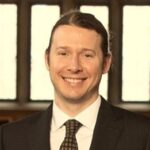
James Hardwick
In the Veterans Law Practicum, students are currently representing veterans at the Court of Appeals for Veterans Claims, a federal appellate court, for service-connected disability compensation claims. Clinic students Dana Simcox ’24, Michelle Brodsky ’25, Morgan Landers ’25, and Jacques Bettig ’25 have reviewed thousands of pages of military and medical records and drafted settlement conference statements currently pending review by the Office of General Counsel. A settlement would result in a joint motion for remand of the case back to the Board of Veterans Appeals for further adjudication. Clinic students Eliza Hong ’24, Elizabeth Mao ’25, Donnavon Fischer ’24, and Nya Hedman ’25 are currently preparing applications for discharge upgrades related to behavioral and mental health, including an airman discharged for using marijuana to treat his mental health while serving under now-rescinded Don’t Ask, Don’t Tell policies and a marine denied medical retirement despite an in-service diagnosis of PTSD and depression. Practicum students have interviewed their clients, family members, and fellow veterans and performed extensive research into these very fact-intensive cases involving highly technical legal arguments.
Students are also working to meet unmet civil legal needs of veterans in central New York who are experiencing or at risk of homelessness. Isaac Belenkiy ’24 is representing an at-risk soldier in a civil proceeding whose service dog was wrongfully seized and abused by a local dog control officer in a case of animal misidentification. We are also fortunate to have Pro Bono Scholar Patrick George ’24 join us to address a range of other administrative and civil legal needs that veterans across our region have asked for assistance with in recent months, including a discharge upgrade application for an airman administratively discharged despite being a survivor of military sexual trauma and legal research in support of a Vietnam-era airman appearing pro se before the Court of Federal Claims on appeal for combat-related special compensation benefits.